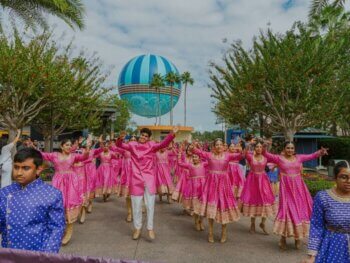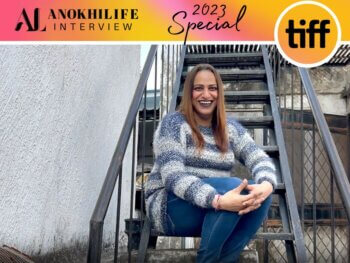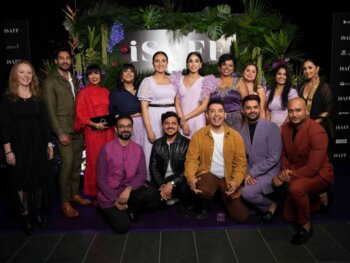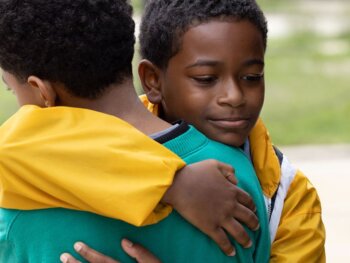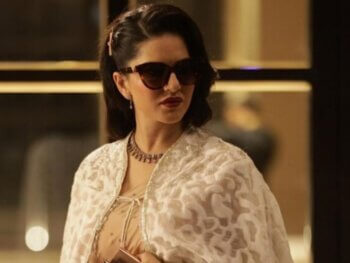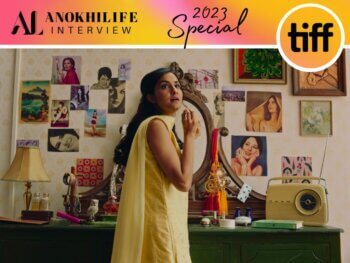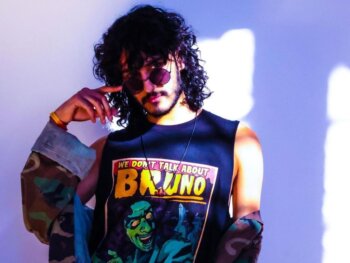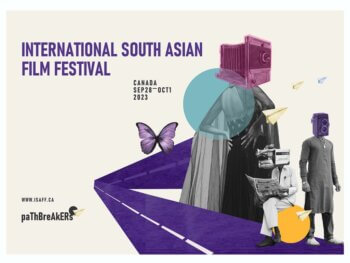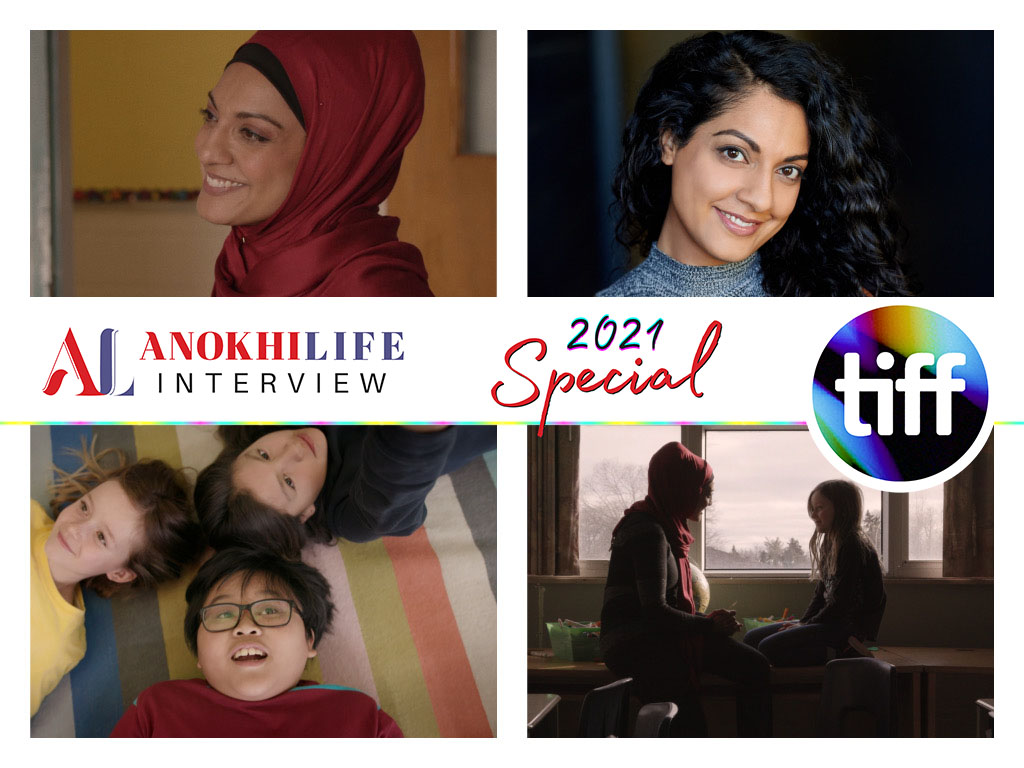
TIFF 2021: One-On-One With Aliya Kanani Who Shines In Award-Winning Indie “Scarborough”
Entertainment Oct 20, 2021
Scarborough premiered at the Toronto International Film Festival and won audiences over so much that it was the first runner-up for the People’s Choice Award and won the fest’s Changemaker Award. It focuses on a group of young kids struggling with poverty, racism, domestic abuse and various other plights in the titular Toronto district. Helping them through it is local teacher Ms. Hina (Aliya Kanani), who offers her students a safe space amidst the chaos. Here, Kanani chats with us about her role, the importance of independent films and how representation is far more than just a visual match.
One of the sleeper hits of this past Toronto International Film Fest was a micro-budget indie shot and set right in Toronto — in Scarborough, to be precise. Based on the acclaimed 2017 novel by Catherine Hernandez (who also wrote the screenplay), the movie follows three young children and their families scraping out a living on the fringes of the city, suffering through poverty, racism and domestic abuse — yet finding strength and hope in each other.
Co-directed by Canadians Shasha Nakhai and Rich Williamson, Scarborough finished as first runner-up for TIFF’s vaunted People’s Choice Award and actually took home the Shawn Mendes Foundation Changemaker Award. Amidst accolades, the film was also picked up for wide distribution by Toronto-based levelFILM; release date TBD.
One of the key cast members is Toronto-based standup comic Aliya Kanani, who plays Ms. Hina — the teacher/social worker who serves as a mentor and source of inspiration for the pint-sized protagonists as they come of age in an ugly world.
During the festival, we spoke with Kanani about the film, her character and the power of representation.
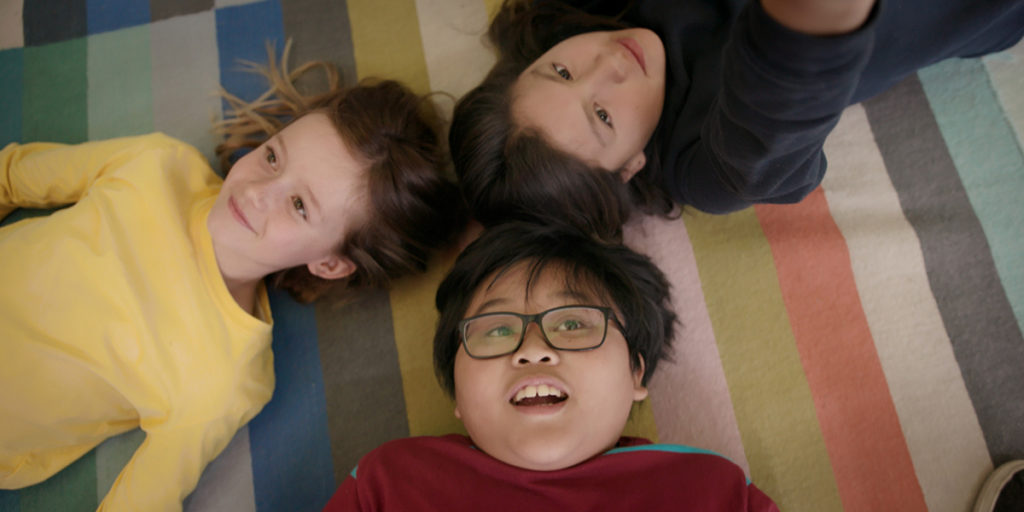
Matthew Currie: To start off, how did you end up playing Ms. Hina?
Aliya Kanani: By accident . . . as most of my life happens to me. I was in Australia, I was touring down there doing my solo show and I got an email through my website from Shasha [Nakhai, the film’s co-director] asking if I wanted to audition for the role. She found me on her own.
I opened it up, and my initial reaction when I saw it was going to be a Hijabi woman teaching at a school, I’m like, “Let me guess: she’s starting again after running away from her violent husband.” She’s traumatized or something very stereotypical, which is what you expect [from the industry]. It’s the nature of the beast. I was supposed to go on a camping trip and I read the character description and I read the synopsis for the film, and I was like, “Oh, no . . . this is so interesting.” Hina’s role, the character itself — I had never come across a character description that allowed a Hijabi Muslim woman and a silly-natured human to co-exist — because those things don’t often exist in the mainstream realities we’ve created for certain folks of certain backgrounds and walks of life . . . And I didn’t go camping! I did this audition instead [laughs].
MC: Had you been interested at all in “dramatic”acting?
AK: I wasn’t out there searching for it. In fact, my agent at this point had stopped sending me for auditions, because I was touring too much. She was like, “I’ve got an audition for you.” And I’m like, “I can’t, I’m in Australia!” And she said, “Well, can you tell me when you’re not on tour?” And I was like, “I’m always on tour” . . . So I was not actively looking for acting gigs, but I was open to it.
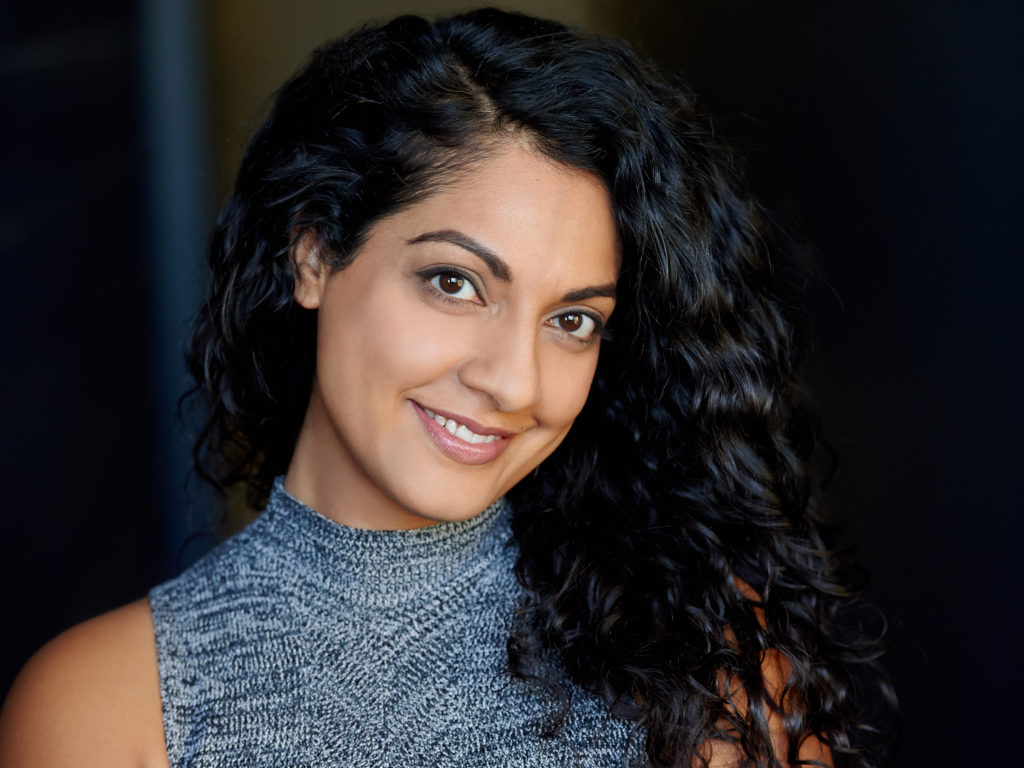
MC: How powerful is it for audiences to see a character like Ms. Hina onscreen? What is the power of a role that subverts expectations for a lot of people?
AK: The power of it is in sort of readjusting people’s expectations. The simplest way of putting it: we are only able to go so far in our imaginations, right? [For viewers] to be able to see folks existing outside of what they have typically been exposed to allows them to make more sense of connections with people of different walks of life — because you start to see the humanity in people rather than this very small dimension that is otherwise shown. When somebody sees someone in a hijab, for example, they’re associating three things: they’re associating Islam — and with Islam, they’re associating a lot of the negative things that come along with that. Secondly, they’re seeing women who don’t have rights; that’s the second thing that they will automatically think: “Oh, these women, they can’t show their hair and therefore they have no independent thought.” And then the third thing is, it’s almost like a barrier that is created: “Well, they’re conservative and they have one way of thinking and that is not my way.” So in finding more dimension in people and showing other parts of the traits of humanity, human nature and personality . . . I think it allows us to connect and say, “Oh, this Muslim woman that I’m seeing on the screen right now is being silly and playing the parachute game with kids.”
I think the power and the value for me in seeing characters that we don’t necessarily see in mainstream is in allowing us more room to exist. The more those stories get told, the more we get to actually be humanized rather than put into these boxes of, “This is where you belong and this is what is expected of you.”
MC: Fortunately, it seems like we’re slowly moving away from the old TV sitcom definitions of diversity and representation, where it was basically just: “We’ll have one non-white character in the cast and then we’re done! Box ticked.”
AK: Representation does not mean more melanin. Yes, we want to see more melanin on the screen, sure. But representation means so much more than just seeing people of different ethnicities and races in their bodies; it means seeing their stories, their characters, their culture, their humanity. All of these things need to exist for representation, when we talk about it, to really mean anything.
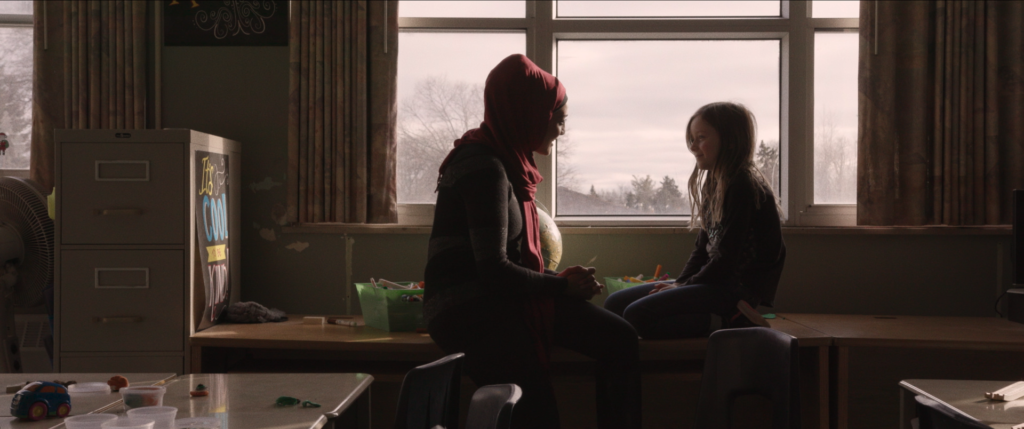
MC: To what extent has that been a factor in your comedy career?
AK: One of the things in standup they often say is you’ve got to go up and the elephant in the room is what you look like and what people assume about you. And you have to bring that out; so people make jokes about, “I know I look like a blah-blah-blah.” You hear that in comedy all the time, right? “Bring people in.” We hope to get to a point [in the entertainment business] where this is part of a person’s existence and not all of it. And not something that has to guide and inform the rest of it, either.
MC: Independent movies like Scarborough do have a unique power that you don’t quite get in big Hollywood films.
AK: I’ve always had a lot of respect for the avant-garde, the indie films, the underdog films — low budgets but big hearts. And this is one of them.
[Scarborough] is so much in feeling the realness of these moments, it’s very delicate what they’ve done. At least for the scenes that I was in, those feelings were really there. The moments of joy were joy, and we really felt it — and the moments of sadness. We really sank into those feelings. I really felt the heaviness in looking at these kids . . . and thinking to myself, “This is actually happening, this is the reality for a child like this.” Because the story feels so real that I could really make that connection. There is a child like that right now, sitting with his teacher or her teacher and somebody needs to explain, “What happened to my friend?” That really is happening. And the way that it was written, the way that we were given the space to create that feeling, I think the reason it feels so real is because we really, all of us went there.
Main Image Photo Credit: Tim Leyes/levelFILM/www.tiff.net
Matthew Currie
Author
A long-standing entertainment journalist, Currie is a graduate of the Professional Writing program at Toronto’s York University. He has spent the past number of years working as a freelancer for ANOKHI and for diverse publications such as Sharp, TV Week, CAA’s Westworld and BC Business. Currie ...



































































































